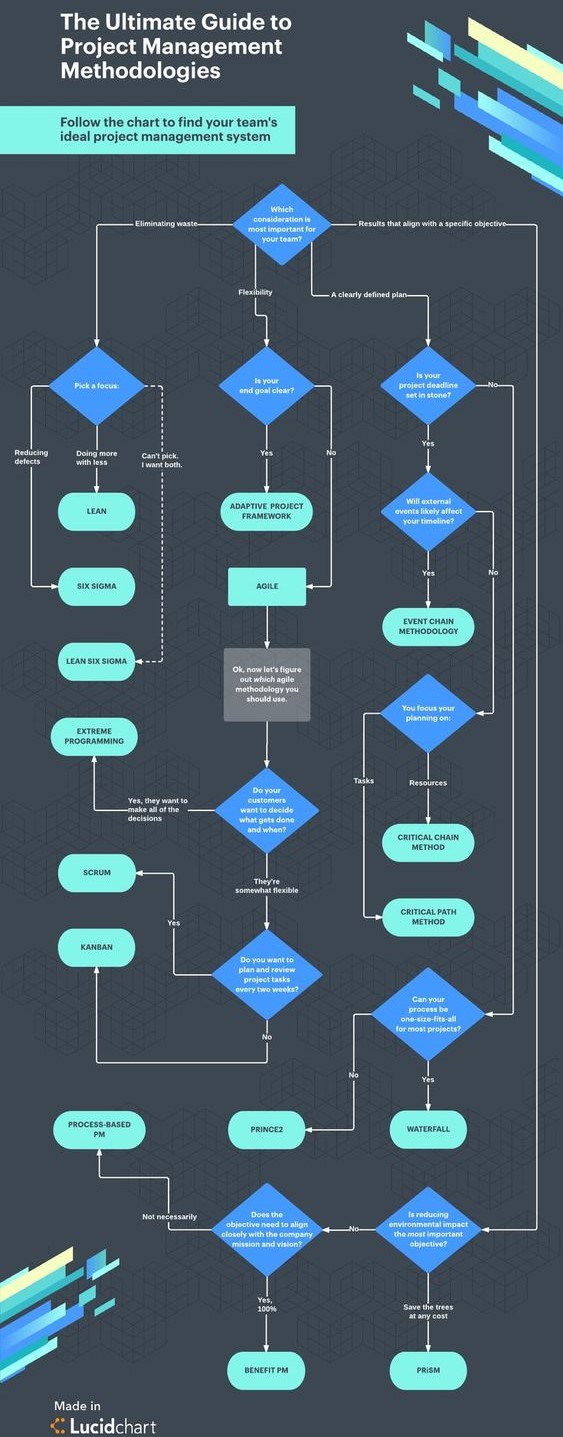Project management is a critical component of any successful project. Project managers are responsible for ensuring that projects are delivered on time, within budget, and to the required quality standards. There are several project management methodologies and frameworks that organizations can use to guide their project management practices. This article provides an overview of some of the most popular project management methodologies and frameworks, and the benefits of using these approaches.
Waterfall Methodology
The waterfall methodology is a sequential project management approach that focuses on delivering each phase of a project before moving on to the next. This methodology is best suited for projects with a clear end goal and well-defined requirements. The phases of the waterfall methodology include requirement gathering, design, implementation, testing, and maintenance.
Agile Methodology
Agile methodology is a flexible, iterative project management approach that emphasizes collaboration and adaptation. This methodology is best suited for projects with rapidly changing requirements or projects that require a high level of collaboration between stakeholders. Agile methodology emphasizes delivering a minimum viable product (MVP) early in the project and then refining it based on feedback from stakeholders.
Lean Methodology
Lean methodology is a project management approach that emphasizes eliminating waste and streamlining processes. This methodology is based on the principles of the Toyota Production System and is best suited for projects with complex processes and a high level of waste. Lean methodology focuses on delivering value to customers by reducing waste, improving quality, and increasing efficiency.
PRINCE2 (Projects IN Controlled Environments)
is a widely used framework for project management in the UK and internationally. It provides a systematic and flexible approach to project management, and it covers all aspects of a project, from initiation to closure. PRINCE2 is suitable for all types of projects, regardless of size, complexity, and industry.
Scrum
another Agile methodology that is commonly used in software development. It is a flexible, iterative, and incremental framework that focuses on delivering value to the customer. Scrum provides a structure for effective team collaboration and helps teams to deliver high-quality software quickly and efficiently.
Lean Project Management
Lean Project Management is a methodology that emphasizes the elimination of waste and the efficient use of resources in a project. It is based on the principles of Lean Manufacturing and it aims to minimize the time and cost required to deliver a project while maximizing the value delivered to the customer.
PMBOK (Project Management Body of Knowledge)
PMBOK (Project Management Body of Knowledge) is a framework developed by the Project Management Institute (PMI). PMBOK is a globally recognized standard for project management and it provides a comprehensive guide to the best practices in project management. PMBOK covers the 10 knowledge areas of project management and the 5 process groups involved in managing a project.
Kanban
Kanban is a visual framework for managing projects and work processes. It is commonly used in software development, but it can also be applied to other types of projects. Kanban uses a visual board to represent the flow of work, and it helps teams to prioritize tasks, manage work in progress, and identify bottlenecks in the process.
You might find these FREE courses useful:
- Create a Project Management Dashboard
- Top Project Management: The Basics For Success
- Top Project Management: Life Cycle And Project
- Top Project Management Certification Google Courses
- Top Project Management: Foundations And Initiation
- Top Project Management Courses – Learn Project
- Top Project Management Principles And Practices
In conclusion, choosing the right project management methodology or framework depends on the specific needs and requirements of the project. Each methodology has its own strengths and weaknesses, and the right choice will depend on factors such as the size, complexity, and type of project, the project goals and objectives, and the organizational culture. Project managers should take the time to evaluate their options and select the methodology that best fits the needs of their project.


